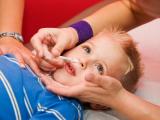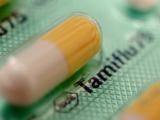Oct 14, 2009
Novel H1N1 turns up on Australian pig farm
Veterinary officials in Queensland, Australia, have detected the pandemic H1N1 virus at a pig farm near Toowoomba, the Australian Associated Press (AAP) reported today. The animals have been quarantined, and biosecurity authorities are working with the farm's owners to establish measures to control the virus. The latest outbreak is Queensland's second; in August the virus struck a farm near Dalby.
http://www.theaustralian.news.com.au/story/0,25197,26209865-12377,00.html
Oct 14 AAP article
Mexico seals pandemic vaccine deal
Mexico's health secretary, Jose Angel Cordova, said yesterday that the government has agreed to obtain 10 million more doses of pandemic H1N1 vaccine from two unnamed European companies, the Canadian Press reported. He said the agreement will raise the country's pandemic vaccine supply to 30 million doses.
http://www.google.com/hostednews/canadianpress/article/ALeqM5hmmqsSaV_nWL_4kq1BLJuNrSQWwQ
Oct 13 Canadian Press story
Researchers ID pulmonary embolism risk
Patients with severe pandemic H1N1 infections may be at greater risk for developing pulmonary emboli, according to an American Journal of Roentgenology (AJR) study. Researchers compared imaging studies performed on two groups, those in the intensive care unit and those who weren't severely ill. Of 14 ICU patients who underwent computed tomography (CT), they saw pulmonary emboli in 5. The authors said though most x-rays are normal, CT can help identify complication risks.
http://www.ajronline.org/aheadofprint/12_09_3599.dtl
Oct 14 AJR study
Imaging may help detect severe H1N1 cases
Imaging studies may help identify severe novel H1N1 flu cases more quickly, researchers from the National Institutes of Health reported today in AJR. They detail the case of a patient who tested negative for the virus on a rapid antigen test, while imaging revealed a severe infection. Radiography showed peripheral lung opacities, and CT showed round-glass opacities. The researchers said that early CT may help detect severe infections, and CT may also help in monitoring treatment.
http://www.ajronline.org/aheadofprint/12_09_3365.dtl
Oct 14 AJR report
Canadian hospital screens all pregnant patients
A British Columbia hospital is screening all pregnant women for the pandemic H1N1 virus when they arrive at the facility in an effort to keep sick women separated from flu-free ones, the Vancouver Sun reported. Pregnant women are one of the groups at highest risk for serious complications. Screening consists of three questions, and women who have flu symptoms are to be isolated in negative-pressure rooms where staff and visitors will be required to wear masks and gowns.
http://www.vancouversun.com/health/Hospital+screens+moms+H1N1/2098232/story.html
Oct 12 Vancouver Sun story
Kids under 10 need two Sanofi vaccine doses
Reporting the first data in children younger than 10 years old, Sanofi Pasteur announced today that this age-group will need two doses of its injectable pandemic H1N1 influenza vaccine, while older kids will require only one shot, consistent with seasonal flu vaccine. In the ongoing clinical trial, after one shot 50% of kids under 3 had an adequate immune response, compared with 76% of those 3 to 9. No serious side effects were reported.
http://www.sanofipasteur.us/sanofi-pasteur2/sp-media/SP_US/EN/23/972/FINAL%20Sanofi%20Pasteur%20post%20dose%201%20ped%20clinical%20trial%20data%2010%2014%2009.pdf?siteCode=SP_US
Oct 14 Sanofi press release
Psoriasis medications may pose H1N1 risk
Those who have psoriasis or psoriatic arthritis and are taking immunosuppressive drugs should get both seasonal and pandemic flu shots as soon as possible, according to the National Psoriasis Foundation. The foundation recommends that patients get vaccinated early, but not with the nasal-spray vaccine, which contains live, weakened virus. It also advocates general flu-avoiding hygienic steps.
http://www.news-medical.net/news/20091013/Psoriasis-patients-taking-immunosuppressive-drugs-at-increased-risk-of-H1N1-flu-viruses.aspx
Oct 13 News-Medical.net report




















